 Your new post is loading...
 Your new post is loading...
IAn instant is all it takes to threaten your business's sterling reputation online. You might have had an off day or the misfortune of dealing with an ornery customer, but it's almost inevitable that you'll come face to face with a negative online review at some point in your career. But, as Adrienne Weissman, CMO at G2 Crowd, recently pointed out, negative reviews aren't all bad. Some 70% of Americans read reviews before making a purchase, and those who seek out negative reviews tend to be more engaged and are 67% more likely to make a purchase. Plus, 68% of people trust a company more when their reviews are a mix of good and bad. Of course, the key to making the best of a bad review lies largely in your response. That means you need to be able to find reviews (both good and bad) as they pop up. That's definitely more social media monitoring than one person can handle... And that's where reputation management tools come in. The following five reputation management tools are some of the best on the market for tracking mentions, discovering influencers, and managing online reviews as they happen....
Filed under: The most WTF thing we've seen in months.
Urban Outfitters, purveyor of clothing and home goods, big-ass floppy hats and occasionally offensive T-shirts, has outdone itself with this product on its website—a "vintage" Kent State University sweatshirt featuring fake blood splatters.
In 1970, the Ohio National Guard fired on a group of unarmed anti-war student protesters at Kent State, killing four and wounding nine others. The sweatshirt sold out quickly, because there was only one. ("We only have one, so get it or regret it!" said the description.) Now it's listed on eBay by someone who says he/she will "give 50% of the profit to the Southern Poverty Law Center, who protect those who cannot protect themselves, often those who are victims of police brutality."...
Your reputation is just as important today as it was in high school.
Except a hit to your brand's reputation today will do more than hurt your social standing--it will hurt your bottom line.
During the next five years, 83 percent of companies will face a crisis that will negatively affect their share price, an infographic from Digital Firefly says.
You don't want to be part of the 83 percent.But a crisis isn't the only time you should monitor your brand's online reputation. Potential customers may sidestep your products based on other things they see online, like product reviews or ads....
Abercrombie & Fitch’s two-hour meeting this week with critics of its no-large-sizes strategy, and of CEO Mike Jeffries’ 2006 remarks that it only courts “attractive, cool” kids, prompted a mea culpa from the chain, and a vow to “take concrete steps to demonstrate our commitment to anti-bullying in addition to our ongoing support of diversity and inclusion,” the teen retailer said in a statement.
During the meeting, 18-year old activist Benjamin O’Keefe — whose Change.org petition urged A&F to carry larger sizes – Lyne Grefe, the CEO of the National Eating Disorder Association, among others, urged Abercrombie executives to add bigger clothes to store shelves, feature larger models in their branding efforts, cease hawking hyper sexualized advertising to its teen audience and redefine its warped, harmful notions of cool, O’Keefe told Forbes.com. Although the CEO was not at the meeting, the retailer offered a tacit apology for Jeffries’ remarks seven years ago, which included this gem: “A lot of people don’t belong [in our clothes] and they can’t belong. Are we exclusionary? Absolutely.”...
Case Study: Good Corporate Communications in a ‘Difficult Situation’ Earlier this month at PyCon 2013 — a big tech industry conference for developers — a female attendee tweeted a picture of two male attendees, publicly shaming them for making inappropriate sexist jokes. This tweet led to at least two people losing their jobs. One of them was the woman herself, who worked for SendGrid as a “developer evangelist”, and the incident has sparked heated debate about sexism in tech and attacks on all sides. But stepping away from the commentary regarding her intentions or actions, we can learn some valuable PR lessons from the actions of a company facing fire due to the actions of an individual employee. As the title of the CEO’s public statement implies, SendGrid did an excellent job of handling a “difficult situation” by taking a stance and communicating it quickly to stakeholders. SendGrid correctly decided that the incident required a corporate response....
Poland Spring, American Airlines, Taco Bell and NASCAR all make our list. The year is less than three months old, yet already several brands have made king-sized screwups in social media. Among their crimes: Using a four-letter word to insult a nine-year-old girl. Live-tweeting a mass layoff. And angering Dave Mustaine of Megadeth. Poland Spring, American Airlines, Taco Bell and NASCAR are among the brands who should have known better. All of the following social media fails triggered hundreds or thousands of responses, and made headlines in the regular media as a result....
|
What do you do when your business has a poor reputation online or received a poor review?A lot of businesses and individuals often wonder how they can better their online reputation.
First, let me tell you how NOT to address negativity online. Don’t create fake reviews. Fake reviews, especially the kind that are paid for, are easily identified by your potential consumers and that will break their trust in you. In addition to being caught by potential consumers, you will likely be caught by site owners and/or Google. For sites like Yelp, they have publicly shamed businesses that they have caught....
Like so many of you, I have been stunned by the images of a militarized police force in Ferguson, MO harassing, tear gassing, arresting and even beating citizens who are protesting the police shoot...
...Let me be clear – these police actions are absolutely wrong from a human perspective too. And, from what I have seen, they have trampled on the people’s right to assemble, freedom of the press, free speech, destruction of personal property, unlawful arrests and likely dozens of other rights I’m not even familiar with.
But, strictly from a PR perspective, they are cutting of their own noses to spite there faces....
...Edward Burkhardt, CEO of Montreal, Maine & Atlantic Railways waited 5 days before visiting the crash site andmaking a statement to the media. His statement lacks a significant, quotable apology to those affected, while focusing too much on the technical aspects of dealing with insurance, finances and monetary issues. He even begins his statement by defending whether he is a compassionate person.
True, the CEO does not always need to be the spokesperson in every crisis. However, a crisis this big demands an appearance and statement within 24 hours of the onset of the crisis.
True, I believe a CEO should spend more time managing the crisis and running the company than trying to be a spokesperson, but a crisis this big demands at least a few hours to talk with the media and the families who have lost loved ones. News reports indicate that at the time of the news briefing, the CEO had not reached out to families....
Mountain Dew might have thought twice about the risk and reward from a deal with someone just as focused on branding as it is. ...The company even earned some good press for buying a promoted tweet to publicize its mea culpa. And the top of its website leads with a giant “We Apologize” note. Following these comments, PepsiCo hasn’t put an executive on a public chopping block, and Tyler has declared they loved the idea when it pitched it. Which begs the question of how sincere this apology is. Audiences will probably trust artists more than brands, so PepsiCo cutting their losses must also include a loss of credibility with Tyler’s base....
We say sorry tens of times a day. ‘Sorry’ for bumping into someone in the street when it’s not our fault, ‘sorry, I didn’t quite catch that’ when you simply can’t hear; and of course we apologise for a perfectly legitimate complaint, ‘I’m sorry, but my soup is cold’. Perhaps our unique British politeness is to blame, but is the word sorry uttered so many times a day that it’s beginning to lose all meaning? I’d go as far to say that we don’t’ even realise when we’re saying sorry, or when we’re being apologised to. So for businesses caught in the midst of a PR disaster, how can they make their customers hear their apologies? Firstly, as Stephanie recently blogged, timing is everything; it took Apple two long weeks to apologise for the Apple Maps debacle and they’re still mopping up the bad PR around that one. We’ve seen many corporate apologies in the past few weeks, particularly in the wake of the horse-meat scandal, and some in particular have stuck out. Tesco, though not the only guilty party by any stretch, has been a serial apologist throughout horsemeat-gate. It has taken out full-page ads in every national newspaper, more than once, to say sorry to customers. There is something striking in this age of digital, rapid, instant, direct-to-the-consumer communication, that the full-page print newspaper apology is still so popular with big businesses; and looking more closely at what Tesco said is very interesting. An article on the BBC last week about the style of Tesco’s newspaper ads, suggested that they have more in common with poems than standard corporate apologies....
As the horsemeat saga rumbles on, it is becoming clearer and clearer which organisations invested in crisis management training beforehand…and which didn’t. This manifests itself most obviously in the performance of company spokesperson in their television and radio interviews. I was asked by The Grocer to assess the crisis communication efforts of the big supermarkets and as part of this I analysed the approach of their crisis spokespeople....
|



 Your new post is loading...
Your new post is loading...



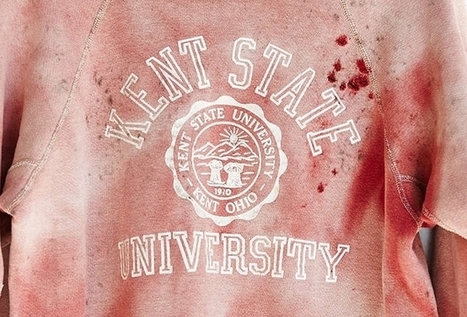


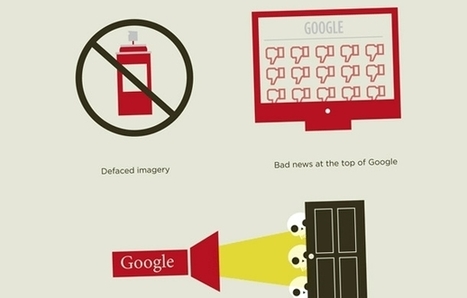



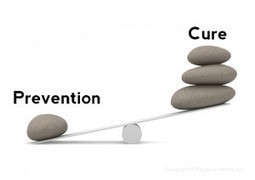
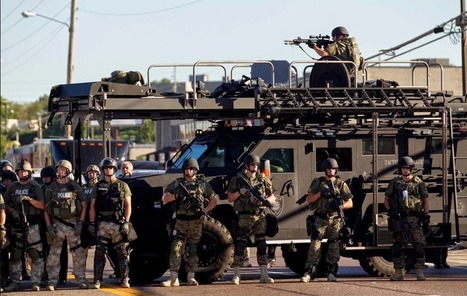



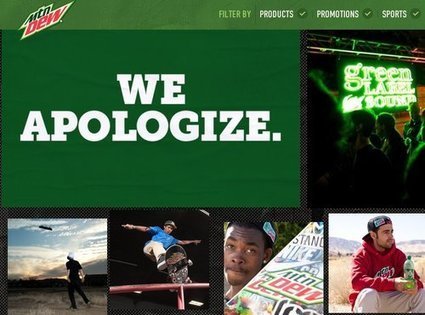







Good reputation management tools if you have a budget, though several offer freemium versions